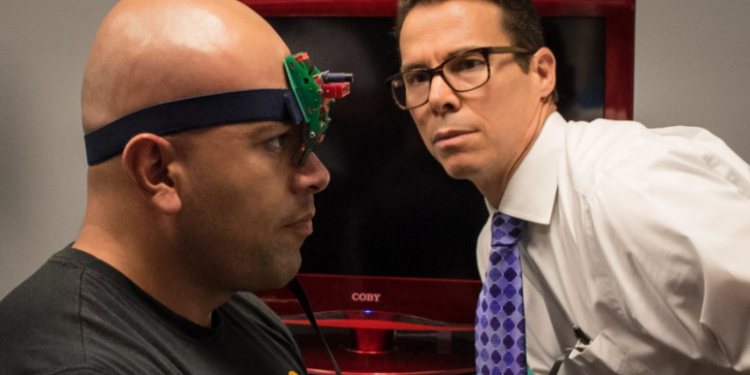By Ian Hebeisen
Animals have aided mental health and physical therapies for decades. While dogs traditionally serve as the most common assistance animal, the roster continues expanding. Now, the list of therapy animals includes dolphins.
Dr. Michael Bagnell is one such doctor working with dolphins to conduct therapy. Practicing for over 31 years, Bagnell first became fascinated by the nervous system while attending chiropractic school. He began a postgraduate neurology program, eventually leading him to functional neurology.
The idea to work with dolphins came to Bagnell from a client. “I have a client… her and her husband are co-owners of dolphin habitats around the world. And a couple years ago, she asked ‘Have you ever thought about doing anything with dolphins?’” said Bagnell. Certain programs in the Caribbean have used dolphins in occupational and physical therapies, but Bagnell wanted to focus on ways the dolphins could help with traumatic brain injuries.
Intrigued by the possibilities, Bagnell began conducting research on the dolphins and the facility. “I spent countless hours going down to the habitat where the dolphins are, working with the specialists and getting in the water,” recounts Bagnell. Over time, he developed a neuroscience camp utilizing the dolphins for a patient’s brain health and recovery.
The entire camp lasts for a week, featuring exercises on land and in the water. Rests are built into the programming to avoid exhaustion for the clients, and meals are provided. “Whether it’s vegan or gluten free, we go all out on the eating and fueling.” Baseline tests are conducted on the first day, with brain training catered to the client based on the test results. Dolphin training alternates every other day with land-based exercises.
The water exercises target the vestibular system as well as specific parts of the brain, like the amygdala. “We’ve seen that the amygdala, which is related to our response to threats, can be overactive in people with PTSD or a brain injury,” said Bagnell. “Many things can bother you, like sound or movement. The amygdala seems to reduce its hypervigilance when you start working with animals like this.”
One exercise features the patient floating on their back in the water while the dolphin circles them. As the dolphin swims, it echolocates, firing natural electromagnetic pulses at the patient. At times, the dolphins seem to know exactly what the patient needs. Bagnell recalls one particular session with a client suffering from a seizure disorder. “As a trainer was trying to move the dolphin to a different area, the dolphin kept coming back near her head and seemed to want to just stay right there.” This indicates the dolphins might be in tune with the patients in ways people don’t fully understand.
Another therapy consists of the patient wearing a snorkel floating face down in the water. With the patient’s limbs outstretched like a starfish, the dolphin pushes the patient in a circle. This pinwheel motion replicates a gyroscope, targeting the vestibular system. “When you’re in the water, your vestibular system is very active,” said Bagnell. “Your brain is having to get information about where you are in the water and your body position. So, we’re using the vestibular system in the water to do particular exercises with the dolphins.”
This program has been running for a few years now, and Bagnell hopes to expand their research and resources. “We have brought in other doctors and we hope to train others, but to have other functional neurologists there serving at the camp is one of my heart’s desires.”
Bagnell encourages people to seek functional neurology and other treatments. Reaching out to people in your area for consultation can lead to solutions you had not previously considered. “It’s a difficult road. Hang in there, seek out some help spiritually, physically,” Bagnell suggests.
To learn more about Bagnell and the dolphin exercises, visit www.bagnellbraincenter.com. To listen to the whole conversation, look for the Faces of TBI Podcast on Apple Podcasts or wherever you get your podcasts.
Ian Hebeisen graduated from Saint Mary’s University in May 2020, earning a degree in Literature with a Writing Emphasis. Now living in the Twin Cities, Ian writes comics, graphic novels, and poetry. In his spare time, he enjoys playing board games with his family.











